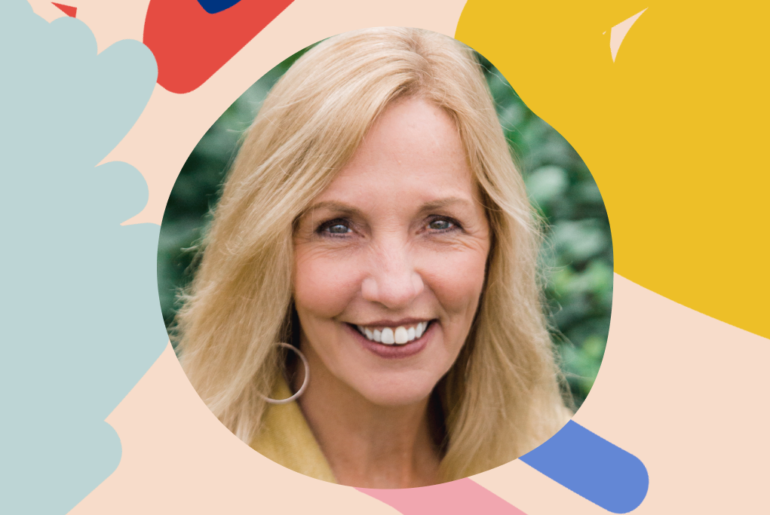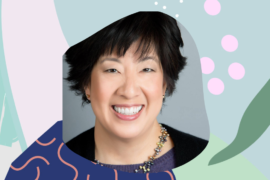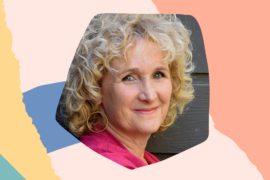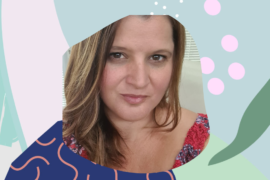Key Takeaways
- The first challenges Deborah faced as she turned 30 years of experience in early childhood education into a sustainable business.
- Why doing what you love for free will ultimately cost you money, no matter what your intention is – and how a membership site solves this problem.
- Why building an audience and a following on social media without launching a membership site is like giving away money – and how it sets you up for burnout.
- How Deborah got out of the mindset that teachers aren’t supposed to make money – and the positive changes that came with it.
Free Give
FREE Guide – Launch & Grow a Profitable Membership Site
Ready to reclaim your time and attract more monthly paying customers? Our step-by-step guide will show you how to build a membership site that turns your passion into recurring profit. Click here to download!Memorable Quotes
“If all you want to do is reach out and influence people and you don’t care about making a dime, you still need to make a dime to keep doing that over time.” – Deborah Stewart “By launching in beta, you learn to have a better sense of what people really want versus what you think they want.” – Deborah StewartEpisode Resources
TeachPreschool.org Teach Preschool on Facebook Teach Preschool on InstagramTranscript
Read The Transcript
Shelli: Deborah Stewart, welcome to the It’s a TRIBE Thing Podcast. How are you?
Deborah: I’m fine. I love being here and thank you for having me.
Shelli: It’s our absolute pleasure and I’m so grateful that you’re able to stop by and share your membership story with our amazing audience so we appreciate you.
Deborah: My pleasure to be here.
Shelli: So, can you start by telling us a little bit about your membership site and who you serve?
Deborah: Yes. My membership site is called the Honey Bee Hive, and I’ll shoot a blog that I run called Teach Preschool. So, clearly, what I serve are preschool people, teachers mostly, classroom teachers, and at-home childcare providers. And what I do for them is give them skills and strategies that they can use to keep their kids engaged throughout the day so they don’t have to spend their day worrying about managing behavior. Instead, they’re spending their day engaging them in learning activities and play and exploration and having fun in an enjoyable classroom.
Shelli: I love it. You have a long history of being an early childhood educator. So, how did the membership come to play with you? Like what were the very beginning roots of, “Hm, I think this might actually be something that has legs that I could serve more people on a bigger scale?” What was the very first sort of thought and challenge that you had to overcome when you were in your beginning stages of your membership journey?
Deborah: Well, let me tell you, first of all, that I started to teach preschool in 2009, so almost 10 years ago and I’ve had very good success on social networks, of reaching out and impacting and influencing teachers over the years and probably waited five years if not longer, too long before I started the membership site. I needed to start it a long time ago but I just didn’t have the confidence and also, it wasn’t something that I knew other people are doing so I just felt like it wouldn’t be accepted like some people would be like, “Oh, whatever,” and not want to have anything to do with. And then about two years ago, I realized that it was a good idea. I needed to try it and I talked to a friend of mine who really encouraged me to do a membership site and so I thought, “Well, I’m going to give it a try,” and so before I do anything that I do, a little bit of research and training, and so I signed up for TRIBE which is run by Stu McLaren and had him walk me through. I just went through his training course to walk me through what does a membership look like.
I just didn’t think I could just swing it like jump in there. I needed to learn a little bit about it first. So, once I learned about how to do it, I felt like it would give me a way to create an income, something I haven’t been very good at and, in fact, terrible at. I needed to start creating an income. One of the things you do as you grow even whether you’re charging or not, your expenses grow. Your blog, the cost of running your blog, the cost of running this website, the cost to your time. And if you never do anything to help facilitate an income through that, you start to outgrow yourself and you can no longer afford to do, something that you’re very passionate about. Even if you would love to do it for free, it costs money, and I needed to do something that allowed me to continue to do what I do and get paid so that I can afford to do what I do.
Shelli: That’s interesting what you say because if you can’t maintain and sustain, then essentially, your gift, your offering, your skills, your knowledge that you are sharing, eventually, the ability to share that will die if you don’t create an income that makes it able for you to sustain your time, your energy, and your momentum. And one of the things that I love that we were talking about was just starting, just the beta launch because you had spoken to that. And I’m curious for you though, you had said that initially your barrier was confidence and then you started to learn. What was the catalyst that actually pushed you over the edge? Because I’m suspecting that there are many people out there listening that think being ready feels and looks like differently than it actually does. So, what was the thing for you that was the catalyst and you said, “Okay. I have all the knowledge I need. I’m actually going to go for it now?”
Deborah: Well, I’m going to tell you, I have never got to a place where I felt like I had all the knowledge I need. I just realized that what I had was I was essentially originally to get started, I just needed somebody to say, “You can do it. I believe you can do it.” I just needed somebody to just affirm that I was doing the right or that I just needed that approval from somebody. And the training in Stu’s course that Stu does that very wonderfully. He just tells you, “You just need to go for it. You need to do it,” and so I just needed someone to make me brave and let go of what I don’t know and being right and being perfect and just do something. And like I said, I already was on it ready to go and do a membership. I knew I needed to do something like I said because I needed to be sustaining this outreach that I had but in order to do it, I was going to have to just be brave. And so, I put on my big girl pants and got brave and just said, “Okay. I learned about the beta launch and spent a lot of time, like a lot of time I mean weeks just studying what to do in a beta launch, and literally, it was just about being brave and just saying, “I’m going to try it and the worst thing it can do is just not work.”
So, worst thing can happen is I had failed and nobody likes it and everybody hates it and I just shut the door and try something else because I’m always about trying something. And the beta launch I put it out there. I did very little advertising because I was so nervous about it but I immediately had a very, very healthy reaction. And so, right out of the beta I got about 150 members signed up.
Shelli: Wow. That’s incredible.
Deborah: Yeah. And that’s encouraging in itself and then you have the next level of nerves that comes next and that it is, “Am I giving them enough? Am I doing the right thing?” It’s endless like for someone like me. You always want to do, you want people to be happy, you want to please them, you want to do more, and you feel like you’re never doing enough. And so, by launching and getting in the beta launch, you learn to have a better sense of what people really want versus what you think they want. And so, it’s in the beta launch that made me start to realize a membership is a good idea but I had to get in it to understand that.
Shelli: Yeah. Well, you said something that really impacted me because you were talking about how you don’t have to overcomplicate and how sometimes people’s procrastination is just fear disguised as something else and some people will say, “Well, I need to have the perfect launch videos or I need to have this amazing sequence or funnel or what have you,” and I love that you said just start. You don’t need to feel confident. You just need to get started. And the thing that really impacted me that you said was if you keep showing up online without having something to offer, you’re training people to see you for free.
Deborah: And that I believe I know that from experience. The longer you put things off like when you put off getting your membership started or getting an income-producing product out there like a membership, which is what I find to be the most, I like it because it grows with you. You know, I like the statement, “You don’t go into it. You grow into it.” You grow along with your membership. You grow personally, professionally, you learn how to outreach better, you learn what you need and you don’t need but you won’t figure any of that out before you get into it. You just learn it as you grow. But the longer you put off getting started on your membership and the longer you just keep pushing it off, you still have to sustain something. You have to sustain your site. You have to sustain your time. You still have to show up online for Facebook or Instagram or wherever you’re showing up. Only you’re doing it all for free.
So, essentially, you’re training your people to get used to having access to you all the time for free. The longer you do that, the harder it is to transition them into being to want to pay you because they’re used to having access to you and so I learned that that’s why I feel like I should’ve started five years ago because I had a huge – I still do but I had so many people wanting access but I had to train them over the years to feel like I’m going to give you everything you need for free because of my heart and I want to help them and I want to support them. And so, when I now had to transition them, there was a transition for everybody. And so, you’re going to have that no matter what I think for yourself and for your people but the longer you put it off, one, you’re still sustaining something and you’re never making anything, you’re not growing anything, you’re just sustaining, and sustaining will burn you out eventually. It’s just too hard. It’s financially complicated, so you need to go ahead and start building something, building something that will help you do better. If all you want to do is reach out and change or affect or influence people and you don’t care about making a dime, you still need to make a dime to keep doing that over time.
Shelli: That’s a repeatable right there. Even if you’re not doing it for the money, you have to make money or it doesn’t become sustainable.
Deborah: No, it does not. And so, I started to realize that and so I started having to have my husband help me do things like help me afford to keep the site and afford to do things and I was like, you know, that’s not fair to him and I’m putting so much time and energy into this and taking away from time and energy for my husband that I needed to grow up and either turn it into something that I’m going to really be self-sufficient in or decided it’s time to stop treating it like a hobby or let it go. And I put so much time over the years into what I love and I’ve been in early childhood for 30 years and then I got this online presence over the last 10 years. It’s not something I’m just going to walk away from and I’m either to do something that allowed me the freedom to be able to still do what I’m doing but be self-sufficient. You become so much more proud of what you’re doing. What’s really cool before I was doing all the same work I am doing now but before, I never made any money at what I did.
I just always felt like that was you’re not supposed to make money as a teacher. You’re supposed to be poor and give it all away. I always felt uncomfortable until I learned that I needed to that I wasn’t being fair to myself or to anybody. So, when I switched my mindset and realized I should do this more in a professional way and in a more confident and a more grown-up way and try to make a membership site out of it, then when it started to work and I started to be able to pay my own bills and didn’t have to ask my husband for that kind of help, all of a sudden I have something that I’m so proud. So, I went from making nothing to everything I do now. Everything makes something financially. Everything I touch makes me money. And it’s not much. It might be $50 or it could be $1,200 here. It could be $21,000. It doesn’t matter. Everything I touch makes me money and it’s so exciting when you realize it just takes these little tweaks and one of those is just getting started and realizing that sitting on your plan and sustaining will drain on you, on everybody else, and it’s training your people to not have respect for you that they probably already have. You just need to go for it. So, that’s why the beta launch to me is huge. They’re even considering it. Stop considering it and just do it.
[ANNOUNCEMENT]
Stu: So many people in all kinds of niche markets are leveraging their existing knowledge and influence and they’re transforming it into passive monthly income. This isn’t luck. This is a repeatable formula for producing a growing subscription income and if thousands of others can do it, you can too. To find out what type of membership site would be right for your business, visit GetTRIBEGuide.com. Go to GetTRIBEGuide.com and download it today. You’re awesome.
[INTERVIEW]
Shelli: I love it. Let’s just narrow it right down. Stop considering it and just do it. I’m really intrigued always by features versus benefits. So, features is what you do and the benefits is the ripple, the impact, the meaning of all of the people that get touched, impacted, change, transformed by what you do. So, if you were to think of the impact that your membership site is making not just for you and your family and not just for the members themselves, but for what the members then go out to go and create in the world, what do you think the consequence would be if you hadn’t started to all of that?
Deborah: Well, if you think about it, every time I reach a teacher through the blog, I mean, through the membership, if I have 300 teachers in my membership which I do and I have each of us, teachers, at least have anywhere from 5 to 25 students, that’s 5 to 25 families that that teacher serves. So, my 300 teachers are coming to me saying, “How can I make my classroom joyful and loving? What can I do tomorrow that will solve this problem so my students will have a better experience so I will have a happier experience? What can I do here? What about this? What about that?” And everything I influence on them is ultimately impacting the lives of all these families, these children who come to school every day, and either can come into an environment where their teacher is stressed and doing junk work, what I call work that we don’t want to see in early childhood classrooms or they can be striving to provide a happy healthy way-based success environment where children are exploring and all of these elements and then creating healthy children.
So, you want to know the big impact, the really big impact which is you’re [inaudible] that I believe this. When you have people going to high schools and shoot up kids, those kids at some point were in early childhood programs. What kind of program did they go into? Did they go into one where they were bonding with their teacher, bonding with their peers, learning the social skills that they need that will carry them through the rest of their life? Because it’s in those first five years where we build important attachments, we build a bond with our teachers, we learn to adjust and self-regulate and have empathy and make decisions and care about others and we take that with us forever. And so, it’s in those first five years that we have to make this impact. And so, if I can do that 300 teachers or more and keep growing at a time times their 5 to 25 students and families times wherever it goes, that’s where my outreach is.
Shelli: Times every year they teach as well.
Deborah: Times every group of students that walk in their door.
Shelli: I’m so glad you said that because I really wanted to drive home that point because it’s so easy to think of a membership site as simply a membership site when you don’t consider the benefit and the ripple effect that that membership site is having. And to your point, if we trace it all back to the root, it’s just start. You don’t have to feel like everything is perfect. It doesn’t have to be all buttoned up and put together. Just start because in your case, this is conservatively 7,500 students every single year. They’re going on to have healthy foundations and what does that do? It’s just mind blowing when you think of the overarching effect you saying yes has on so many lives.
Deborah: And I know that we think that going into a beta launch or going into this, that if we can just get this right or have this figured out or do this first then you’ll be ready to start then you’ll be ready to begin. But I’m going to tell you the first thing I learned once I got into my beta launch is that all the things that I thought were the right thing to do, I changed. They wouldn’t want what I should’ve done.
Shelli: So, can you give us an example of that?
Deborah: The first glaring problem was I had too much content. I felt like I needed to give them like the world and give them all of this content even though I had pared way down even before I started the beta launch because Stu had said keep it simple in my training and so I did and still I was overwhelming my people. If you’re coming into something that you’re fairly knowledgeable about, hopefully, and you have experience in, you’re going to come in with a such higher level of knowledge that your people come in and they’re not at the same place as you and you just don’t fully appreciate and understand that. And then you get in there and you start sharing all this content or you’re sharing at a level that is over their head and you start to realize that when you hear their feedback, you’re like, “Whoa, that’s what you heard? I got to go way back and start more at the beginning.”
And so, you have to get in there before you start getting too far ahead of yourself and realize when you start interacting and hearing from you people what they’re learning from you, one, are you giving them too much, too fast? And probably you are and you probably are planning that. And two, are you over their head and do you need to pare it down and simplify and make things just super simple? And I always thought that was bizarre that somebody would pay me $25 for an hour of my time a month, right? But the reality is they’re paying me $25 for my 30 years of experience and it’s my job to pair that down so that they’re not having to swallow 30 years in an hour. They’re swallowing one piece of information at a time so that they can grow. They can’t grow if we overdose them.
Shelli: I love that. I recently heard a quote to your point. It says if I do a job in 30 minutes it’s because I spent 10 years learning how to do that in 30 minutes. You owe me for the years, not the minutes.
Deborah: It’s exactly the best quote and it’s exactly true. We bring to the table when we’re thinking of running a membership site. Obviously, we have something that we have to offer, some passion that we’ve spent time on that we have some scale or some whatever that may be but when you’re planning it, you think I have to have all these things right and I have to have all this content right and then you get in there and you’re going to find that probably you’ve over planned, put too much content. And to be honest with you, it’s much better to start super simple and have lots of room to add and grow than just start really big and have to figure out I have overdone it and I got to scale down. You don’t want to scale down. You want to build up. So, start off super simple and that’s why beta launch is so great. It’s even better if you don’t even have a clue what you’re doing and you have nothing prepared and you show up the first day and you’re like, “Here’s this video. Hope you guys love it. And now I’m working on the next one. Let me know. Give me some feedback and I’m going to figure out the next one,” until you get some sense of rhythm. And then you go and you start batching and you start creating because you now have a sense and you build your site with your beta rather than throw everything in on then and then have to pare it down. It’s very hard to pare down. It’s a lot easier to build up.
Shelli: The way I can see your point, your members will give you the map of the destination that they want to get to.
Deborah: Yeah. And even if you don’t feel like they’re giving you the full map because sometimes they don’t know what they just or love you and they want to just hear from you then start with simple and wait and see if that’s resonating and if you feel like there’s more that’s needed then bring more. You always have room to add more but it’s very hard to take away so I can’t recommend enough to start super simple and giving people the opportunity to absorb and retain the information and then start building a dialogue with them and see, are they hearing you? Are they ready for more? You’re like, “Man, I have too much more to give and I have all this time that I just would love to do more.” Great. That’s a great place to be. What you don’t want to be is, “I’m so tired. I’ve put so much and now that I do it again.” You’ve done too much to begin with so start simple. Your videos can be simple. I mean, in my opinion, you can’t start simple enough.
Shelli: Absolutely. Because you will experience paralysis analysis, will eventually not start and then you will not be impacting the amazing people that you’ve been impacting. So, I wanted to, first of all, acknowledge the work that you’re doing the world because giving our young people a solid foundation, there’s very few things as noble as that. So, I, first of all, wanted to thank you for your time, acknowledge you for your work, and also give people the opportunity if they want to connect with you online where is the best place for them to be able to do that?
Deborah: Look up Teach Preschool. I got a TeachPreschool.org or you can go to Teach Preschool on Facebook, Instagram. Those are my two places that I hang out. I’m on the others but those are the two I hang out. And we share all kinds of fun things on Teach Preschool on Instagram straight from my classroom and we show lots of fun ideas but, of course, and the Honey Bee Hive is where we dive in deep with our teachers that are incredibly dedicated to what they do. You learn to have a huge respect for these people who follow you because you find out that they are highly committed and that’s why they follow you. It’s a huge compliment to you.
Shelli: Excellent. Well, thank you so much for your time, for your expertise, and for your loving handholding and encouragement because at the end of the day, you’re right. We just need to start.
Deborah: Yeah. Definitely.
[CLOSING]
Stu: I hope you love that story. It’s amazing, right? That’s what It’s a TRIBE Thing is all about. So many people in all kinds of niche markets are leveraging their existing knowledge and influence and they’re transforming it into passive monthly income. Listen, this isn’t luck. There’s a repeatable formula for producing a growing subscription income and each week we’re going behind the scenes to show you exactly how they did it. Get the latest stories and actionable ideas from each episode at www.ItsaTRIBEThing.com and if you know one other person who could benefit from this, tell them to subscribe. Tell them to go to ItsaTRIBEThing.com.
[END]






